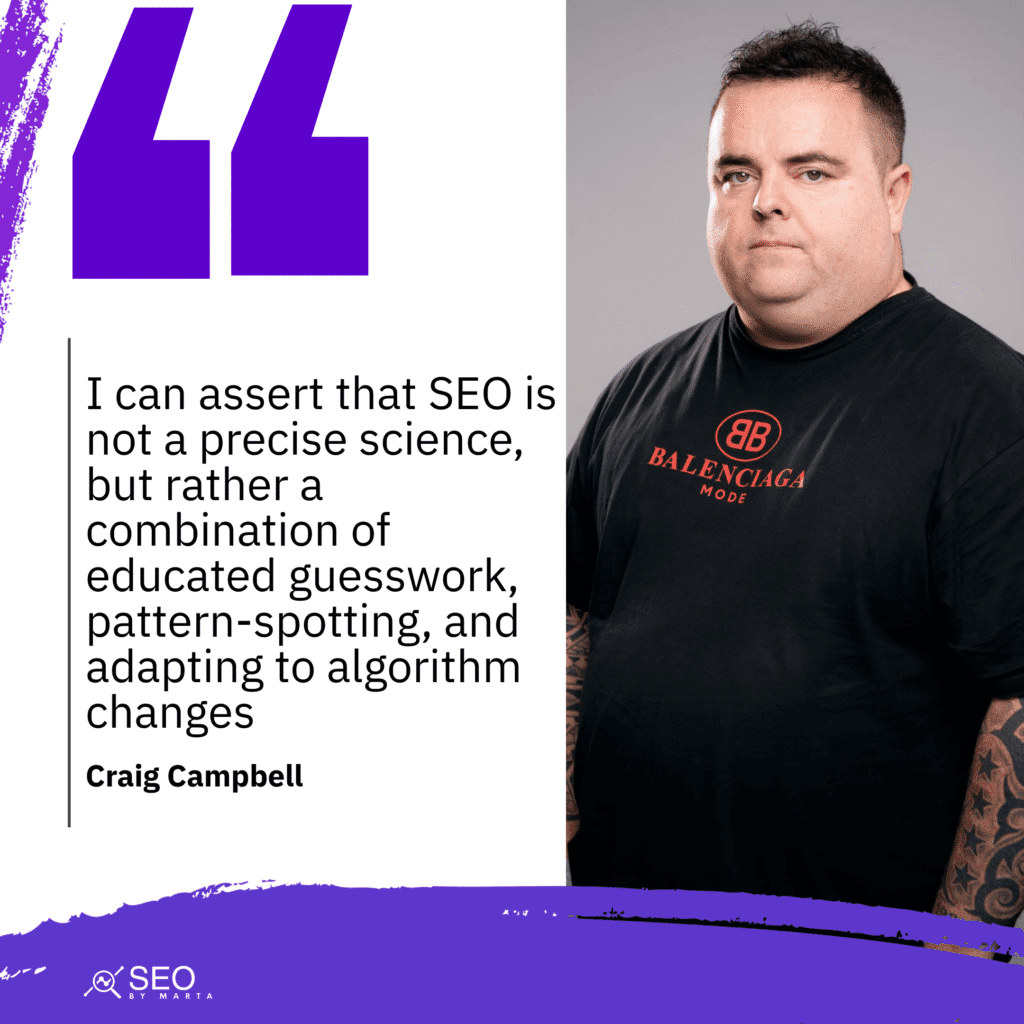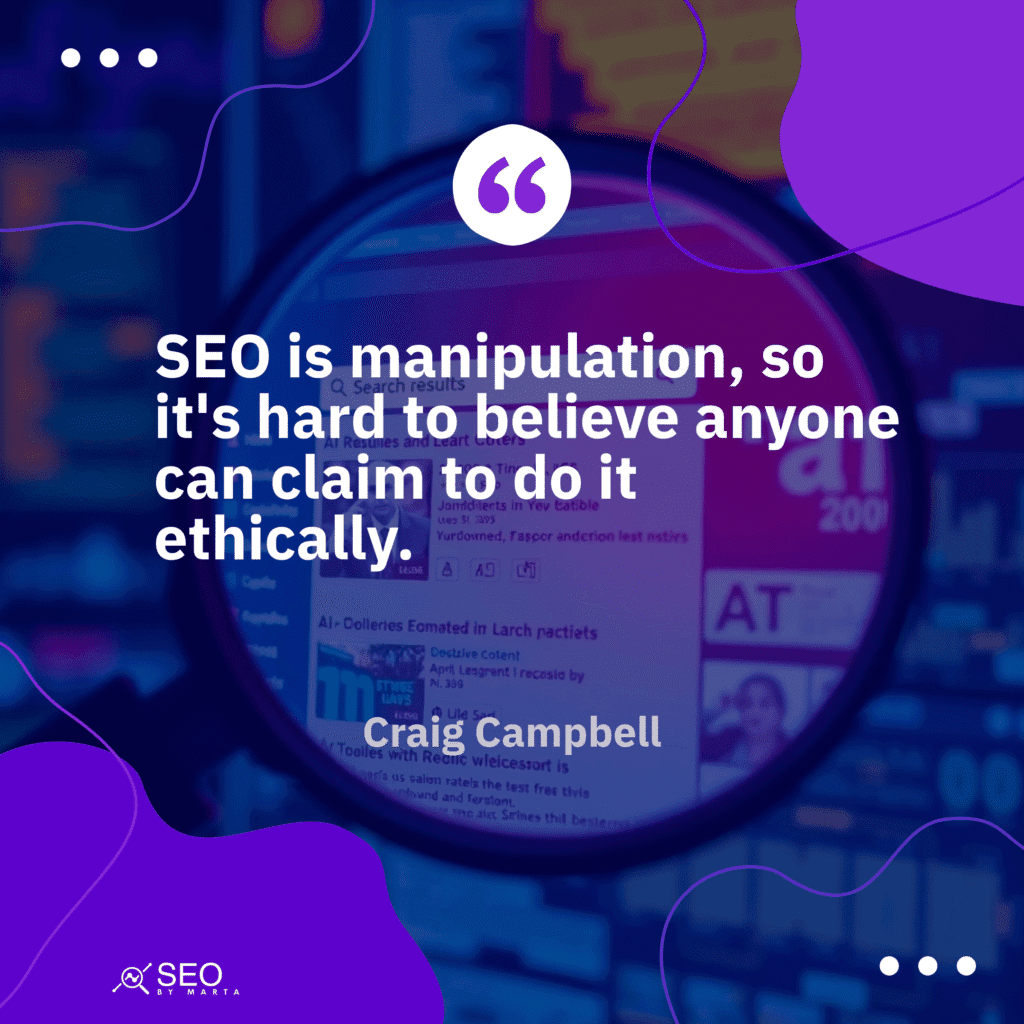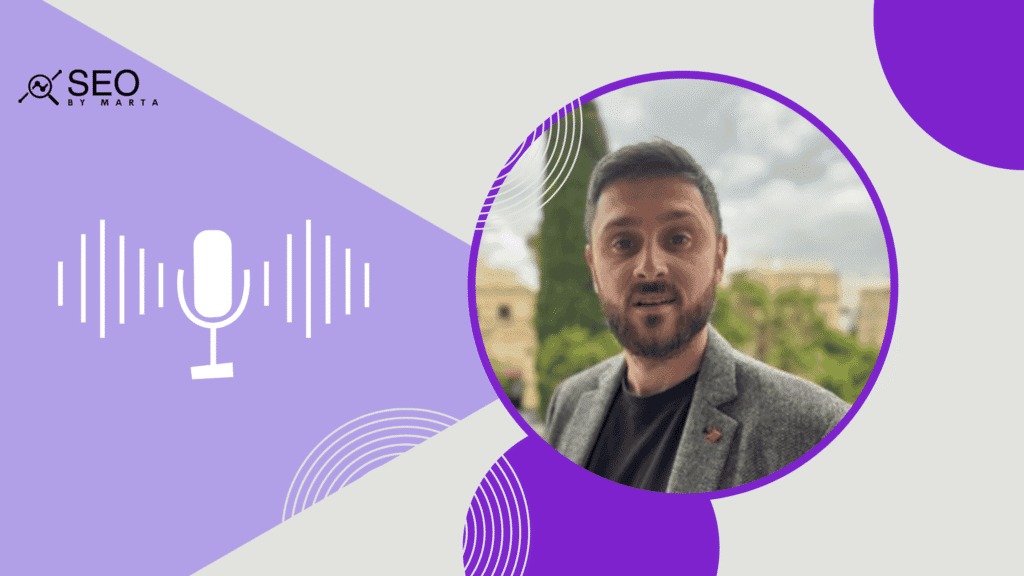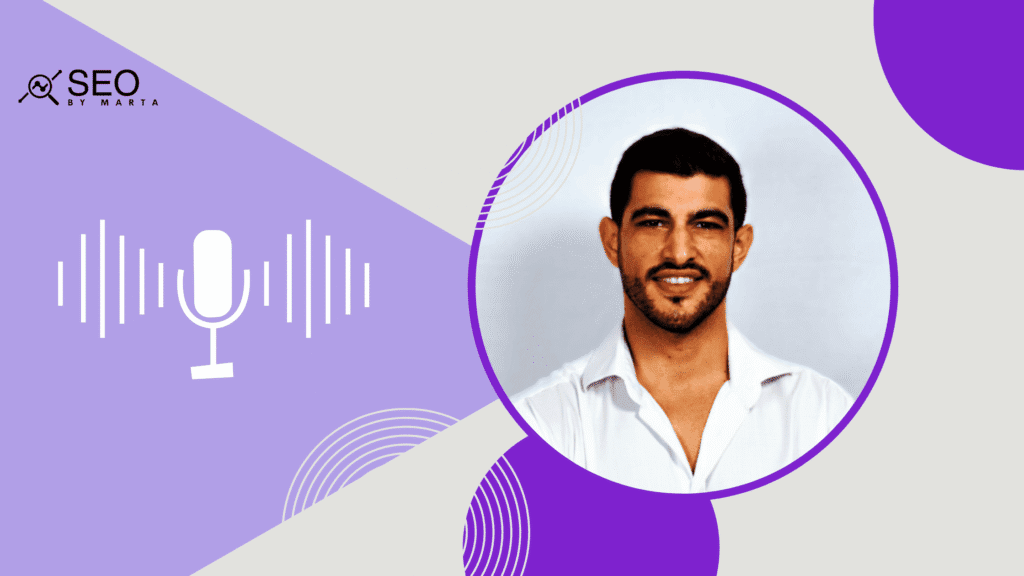About Craig Campbell
Craig Campbell is one of the most recognized and outspoken names in SEO. With over two decades of hands-on experience, Craig has built a reputation as a strategist who doesn’t just talk about theory; he tests everything. Known for his unfiltered honesty, Craig has spent years exposing the myths, manipulations, and marketing noise that cloud the SEO industry. From link-building experiments to affiliate growth systems, he’s made a career out of discovering what actually moves rankings, even when it goes against Google’s official guidelines.
As an international speaker, educator, and digital entrepreneur, Craig continues to teach thousands of SEOs how to build real-world results through experimentation, data, and common sense. His philosophy is simple: You can’t understand SEO if you never test its limits.
Interview – Testing, Risks, and the Grey Areas That Still Move Rankings
Every industry has a hidden side, and SEO is no exception. Behind the polished case studies and corporate jargon lies a world of testing, risk-taking, and calculated rule-bending that drives real results.
Few people know this world better than Craig Campbell. For more than 25 years, he’s been one of the few voices willing to say what others won’t: that SEO isn’t clean, predictable, or fair. It’s messy, constantly changing, and powered by those who experiment without fear.
In this exclusive interview, Craig opens up about the grey areas of SEO — the tactics that still work, the lines worth crossing, and the importance of understanding the algorithm from the inside out. This is not an interview about compliance; it’s about truth.
Q: Craig, you’ve always been refreshingly honest about what actually works in SEO. Why do you think so many people are afraid to talk about the “dark side”?
A: I completely understand why many people will not want to discuss the dark side; if you are doing client work, it doesn’t always make sense to disclose things that could make a client question your abilities as an SEO. People tend to follow the general narrative that dictates a specific approach. To ensure clients continue paying and maintain their peace of mind, it is sometimes best to implement a cleaner strategy. My argument is the strategy is dictated by the competition and what is being rewarded by Google, and if someone is doing specific things and getting away with it, then you have to fight fire with fire and get in on the action.
However, there comes a time when things change. I do see many so-called white hat SEOs talk about one way of working, and what they do is completely different, and they do care about getting results for their clients and will try out some of the grey hat tactics that are out there.
However, the documentation and deliverables provided do not always align with each other. But one thing I would say is you don’t always have to use grey or black hat strategies either; you can get away with some good on-page and technical SEO in certain niches. However, in highly competitive niches such as iGaming, it’s crucial to step up or risk falling behind, and in some of these niches, the revenue is worth millions of dollars per month. You really can’t afford to be waiting on the Google gods rewarding your evergreen content or giving you natural links or whatever the story they use these days is.

Q: Let’s start with the basics — what does the “dark side” of SEO really mean to you? Is it about risk, experimentation, or just doing what others won’t?
A: For the most part its about ROI, I don’t think it’s about experimenting for the sake of it as such. I do like to experiment; it’s simply about deploying a tactic that works and gets you the ROI you need on that project. For instance, in the iGaming industry, individuals frequently abandon their primary website in favour of other projects. The main website is the long-term play, and you don’t take as much risk on that particular website. But does that mean you can’t have a second or third website where you take more risk and go more aggressive with your strategy to get a quicker ROI?
However, as you mentioned, some people refuse to try new things; they are unwilling to experiment or change their mindset, which I believe puts them in a very dangerous predicament as human beings. Not everything we do as humans is always going to win; we have to make mistakes, try, and test things to become more knowledgeable.
There are many folks out there who try weird and wonderful things on the internet, on test websites, and it’s a great way to see if what is being told is actually the truth. How many times in life have we been told something, only to find out later that it was completely false? As an SEO, at least be able to argue your point if you think something doesn’t work, and I see many debates online where there is absolutely no proof of specific claims, and people know it’s all nonsense. So always be testing.

Q: You’ve spent decades testing SEO myths. What’s one controversial tactic you’ve proven still works, even if it’s “not best practice”?
A: I wouldn’t say the most controversial, but I’ve always loved PBNs as part of my link-building strategies, and people say they don’t work and haven’t for many years. Utilising an aged domain with a solid backlink profile has always been a no-brainer for me, and it’s a link that your competition cannot get, as you own the website, right?
Therefore, having assets like that provides you with a competitive edge. I wouldn’t say it’s that controversial as such, but it has caused a lot of debate over the years.
I have also liked CTR for many years, and it’s only recently that people are now starting to realise that CTR and engagement signals do carry a lot of weight and can make a difference to your rankings. Paid ads, push notifications or any other source of traffic will always have a positive impact on your rankings if done properly, so im throwing that into the mix as well.
Q: Many SEOs play it safe to avoid penalties. How do you balance experimentation with long-term sustainability for a site or brand?
A: Let’s face it, who would want to incur a penalty? We have done many tests to see how far we can push certain things. For example, we all talk about AI content. Does it work? Does it get indexed? Do you get punished for it? And the answer is an absolute yes. By this I mean straight-out-of-the-box AI content, with no human edits or anything like that.
We tested it on multiple sites in recent years and initially saw amazing success; however, after about six months, each website received an algorithmic penalty. Even after removing the AI-generated content, adding real content, and addressing all other aspects of SEO, we were unable to recover any of the websites.
The only way around that was to do a redirect and move to a new domain name, so when you get caught, Google literally makes your life impossible, and that’s not something you want to do on someone’s website, but that answer can only be given if you try and test the theory and figure a way out of trouble.
This is why you should consistently test and experiment with various strategies to determine what works, what doesn’t, the duration of effectiveness, and the potential consequences; this approach will enable you to make better decisions for your actual projects.
Q: How important is testing in SEO today, and what are some of the most surprising insights your own tests have revealed recently?
A: Critical, I love to test things out; I want to work faster and more efficiently and always be ahead of the curve, and how else can that be done without a test? I mentioned some of these points in earlier questions, but I often hear people discussing theories about how things should work, which does not reflect reality.
Unless you can provide some form of data on what you’re saying, then what is the point in saying it?
I mean surprising tests recently, feeding the LLMs and getting things into the `AI overview. I’m surprised at how easy that is to manipulate, and we do a lot of tests on there to see how quickly we can get things done.
We can completely change the narrative on people quite easily, and the LLMs, as well as the search engines, pick this stuff up and treat it like it’s gospel information, which is difficult to believe.
In one particular case, I had a friend do some stuff and basically made the LLM pick up that I was an Aquapony trainer and was part of the French Olympic Aquapony team. Now that didn’t take much to do – a few trusted sources citing it and a couple of other little bits and bobs, and before we knew it, that’s what ChatGPT and the other LLMs thought of me after 25 years of being in the SEO space and all of the other interviews, podcasts, content, videos and everything else I’ve put out there over the years. It was that easy to change who I am.
Q: Link building is still one of the most manipulated parts of SEO. What’s your honest take on paid links, link schemes, and the reality of what Google really values?
A: I think links have always been important, but I do see things evolving. We need to be making sure we get relevant links from websites that rank well and have traffic, rather than any old link will do. Others in the space will regularly say a link is a link, and I think that is changing.
People pay for links, no matter what anyone says; if you want a link, you’ll usually pay for it in one way or another.
But whether it’s a guest post, PBN, press release, an interview, a quote or brand mention, it’s wise to mix things up and try and get different types of links, but the reality is a link is still a link, and whether that’s on someone’s PBN, or you have been a podcast guest or under any other guise, I think it is very difficult for Google to regulate it.
But I personally do look at things like the number of outbound links, traffic to the website, what keywords the website ranks for and a number of other checks, as I do think if we have a site that links out to 200,000 other people, and one blog post is about SEO and the next one is about casinos, then I do think Google are clever enough to realise those websites are not credible and do not pass the same value to websites like that.
Q: When you push boundaries, there’s always risk. What’s the biggest gamble you’ve taken in SEO — and what did you learn from it?
With a lot of the testing sites I play with, I’ve taken all the risks and gambles you is a journey worth taking, as each day offers new learning opportunities. I always learn valuable lessons from these scenarios, primarily about what not to do; however, this knowledge helps me sensibly push boundaries. In reality, my goal with any website is to avoid unnecessary risks, as I aim for long-term growth and the potential to sell the website later.
If the truth be told, back in the day, a DMOZ listing was the big thing in terms of a link, and everyone out there said it was the link to get. The biggest gamble I ever took was believing that claim, and I am still waiting for that link to be approved.
So I learnt not to believe in a lot of the stuff that people claim. I’m still waiting on those natural links that Google apparently gives out, as well as a whole bunch of other stuff that I used to believe.
Q: You’ve said before that the “white hat vs black hat” debate is outdated. What’s the smarter way for SEOs to think about risk and ethics in 2026?
A: SEO is manipulation, so it’s hard to believe anyone can claim to do it ethically. What does white hat SEO actually entail?
Many people often think of black hat SEO as spam, automation, and other questionable tactics, but the reality is that these methods don’t work long term either, so a balance must be found.
All I can ever strongly advise is that it’s a results-driven business, and if you don’t get the results, you won’t last long in business, or you won’t retain the client, so to feed your family and have a good life, you have to take action and do what works.
Q: Do you think Google itself creates the very system it tells SEOs not to exploit? How should we interpret the contradictions in their guidelines?
A: Listen, you have to think of it from Google’s perspective; they will not sit there saying, ‘Hey SEOs, here is a way to absolutely abuse our search engine.’ They will throw out whatever they feel they need to so they don’t get abused as such.
They have consistently contradicted themselves; consider the Google leaks from last year and the numerous contradictions identified within them.
But I’d also have to question whether this stuff was deliberately leaked, too.
There has been so much misinformation over the years given out that it always goes back to testing, because Google said it doesn’t mean its right, and the same goes for any other person saying things. Test it and see for yourself if it works or not.
Q: With AI and machine-generated content flooding the web, are we entering a new kind of grey-hat era — one where automation is the game?
Absolutely, it’s like being back in seo in the early 2000s; everyone is on a level playing field with AI and automation. Everyone must embrace, learn, and experiment with it to have a fair chance of success. No one is 20 years ahead of you with this stuff, and it isn’t going anywhere anytime soon. So, I, for one, find it an exciting time with lots of new stuff to learn.
I’ve always loved automation, and currently, from what we see at the moment, I think it is going to be a key component of how we grow and scale our online businesses. But we need humans to operate and manage this stuff. Many people fear for their jobs, and rightly so, but it’s a time to learn more about this stuff rather than fearing it.
Q: Many young SEOs want fast results. What’s your advice to them about taking shortcuts vs learning the fundamentals through testing?
A: I get the shortcut way of working; I want those shortcuts too, but in reality, those guys who are successful in SEO have years of experience and tested things which cost a lot of money and these shortcuts have to be learnt.
Many people expect you to provide them with shortcuts, yet I’ve yet to find anyone who shares a truly effective shortcut that lasts over the long term. Sure, people do give out information, but the gimmicks and hacks really don’t always work for the long term.
The reality of SEO is that it involves repetitive tasks, can be tedious, and requires significant effort; to succeed, you must implement systems and standard operating procedures (SOPs) while investing either money or time.
Q: Finally, Craig, after all these years in the trenches, what’s the one truth about SEO that almost no one in the industry is willing to admit?
A: I can assert that SEO is not a precise science, but rather a combination of educated guesswork, pattern-spotting, and adapting to algorithm changes. The sooner you realise that the better you are, the more you can join in the fun. Sure, many people have a lot of experience, study Google patents and all that good stuff, but can anyone out there say they 100% know how it all works?
You must study, test, network, analyse, and use common sense to get where you need to be, as things change so quickly that even an expert would be outdated.
Conclusion
SEO isn´t about paying safe, but about playing smart. In our interview, Craig doesn’t romanticize SEO; he treats it like what it truly is: an evolving game of strategy, testing, data analysis, and taking risks. His approach isn’t about chasing rules or pretending there’s one clean way to win. It’s about understanding that search is a living system, full of contradictions and opportunities for those who dare to test what others only theorize about.
In an industry often obsessed with compliance and “best practices,” Craig’s perspective is refreshingly grounded. He reminds us that the line between white hat and black hat has always been more psychological than practical. What matters is knowing why something works, when to use it, and how far to push it before the balance tips. Craig’s message couldn’t be more relevant: Stop waiting for permission. Test your ideas, study your data, and build systems that can adapt faster than the rules can change.




